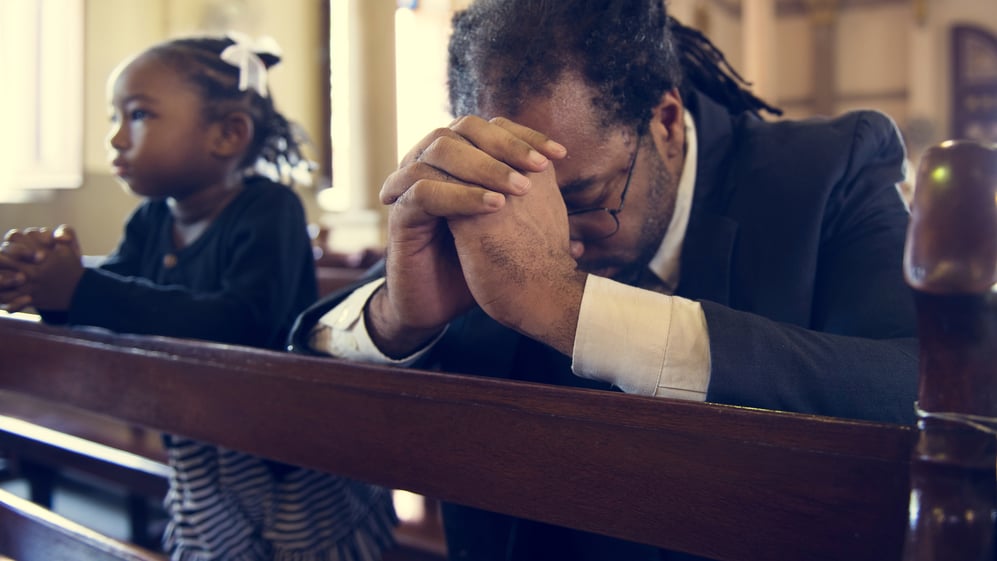As anyone who spends time around kids can attest, children love to move. In fact, it is often difficult to get them to sit still, and many teachers know how beneficial it is to plan lessons in which children can move their bodies while still learning. Like many things, this characteristic of children speaks truth about human beings in general: we are made to move.
Made to Move and Form Habits
God made our bodies to move, and, furthermore, that movement is an important part of what forms our souls. Our everyday movements become our physical habits, and these physical habits, in turn, shape our hearts and minds. After all, the little things we do daily show what kind of person we are and guide us into becoming a certain kind of person.
Do you brush your teeth daily? If so, have you ever forgotten to brush them on occasion? If so, you probably felt a little off the day you forgot to brush because you deviated from habit. Most of us automatically reach for the toothbrush or have it ingrained in our daily routine. We not only value our dental health and hygiene to begin with, but the habit of brushing daily also encourages us to continue to take our dental health and hygiene seriously. It is important to guide our daily movements into good habits (such as brushing our teeth) because these habits eventually form our characters.
Habit Formation Affects Our Souls
The formation of good physical habits affects our hearts, minds, and souls, and is part of why the Church has handed down the tradition of movement during the Divine Service. Consider the physicality of the Service and how we are taught to stand, sit, bow, kneel, close our eyes, and fold our hands. These seemingly little and unimportant movements help us to form a proper level of reverence and respect.
When I was a child, like many, I was taught to fold my hands, bow my head, and close my eyes during prayer. These physical movements became so ingrained in me that I felt irreverent when they were not adhered to. In the past few years, I have learned to bow at the Gloria Patri and to cross myself during invocations and benedictions. Once a little odd to me, these movements are now so natural that I do them almost automatically at the proper times. They have influenced me to adopt an increasingly reverent attitude in church.
If we are honest, though, we do not always feel like doing the things we ought to do. We may not always feel reverent during the Service when there are a million other things to think about. When our reverent movements become automatic, however, we respond with due reverence even if we do not feel like it. The physical habits we form may even help to guide our hearts and minds back to a sense of reverence. These physical habits keep us involved in the Divine Service and give us a simple way to put our minds on the things being said.
Habits Encourage Reverence of Body
Some people may argue that the automatic habits of the Divine Service become a simple going-through-the-motions. They may contend that these habits on their own prevent a person’s heart, mind, or soul from being actively engaged in the Service and a person would be better served to truly feel certain emotions before matching their movements to their feelings. Certainly, our distracted thoughts may keep us from feeling the proper emotions or attitudes in church. In reality, though, this will be the case whether or not there are habitual movements involved. It is our sinful nature not to pay attention with our whole heart.
Automatic, habitual movements do not determine that. In fact, during times of distraction, these physical habits ensure that we maintain reverence of body even when we lack reverence of heart, mind, or soul. Being mindful of what the reverent movements of our body indicate can remind our heart, mind, and soul of the sacrifice of our Lord and the gifts He is giving as we approach the gifts of Word and Sacrament appropriately when we do not feel up to the task. Lacking these habits, it would be much harder for the reverence displayed in our body to stir reverence in our heart, mind, and soul.
Like children during a day at school, we are bodies that need movement. We are people of habits formed by the ways in which we move. And we are souls that are formed by the Word of God, influenced by the habits we develop. The rich treasure of the Church and her liturgy is that she recognizes this fact and provides movements for our bodies to tangibly show us the reverence due to our Savior who redeems both our bodies and our souls.
Learn more about the liturgy of the Divine Service by ordering Friedrich Lochner's book below.













